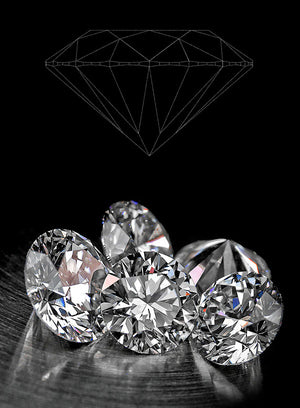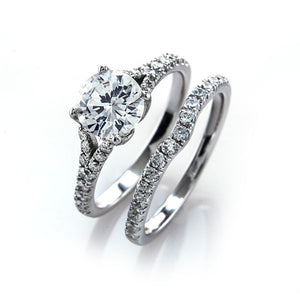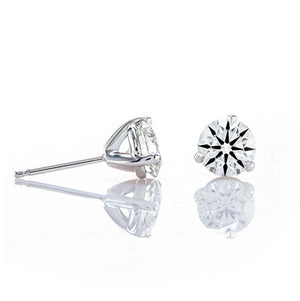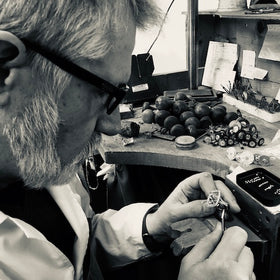
Is Chlorine bad for my jewelry?
A client recently sent us a vintage 14k yellow gold ring for evaluation because it had developed black streaks along the seam where it had been sized and in some other areas of the ring which we later determined to be showing signs of metal stress due to age. The client had tried to clean the ring herself using several different types of household cleaners, including a mixture of chlorine bleach and water, which seemed to make the problem worse.
Chlorine turns gold karat jewelry black:
The effect upon chlorine on gold jewelry which is not pure 24K gold is to turn it black, due to a chemical reaction between the chlorine and various alloys which are mixed with gold to make it more durable. Brief exposure to harsh chemicals such as chlorine bleach will have a tendency to blacken areas of the ring which contain solder, such as where a ring has been repaired or sized, and in areas where the structure of the ring is suffering from factors of age such as metal stress.
This was the case of our client’s vintage 14k yellow gold ring which she had attempted to clean using a mixture of chlorine bleach and tap water, the areas of the ring which had been sized, repaired, and which contained minor cracks in the surface of the ring, turned black within minutes of exposure.
Thankfully she had not decided to soak the ring in the solution of bleach and water for an extended period of time, because doing so could actually cause the ring to become brittle to the extent that it could actually disintegrate.
Because of the harsh chemical reaction which occurs between chlorine and the various alloys which are mixed with gold, it is important not to wear your gold karat jewelry while swimming. Although the chlorine content of swimming pools is less concentrated than chlorine bleach, the long term effect of frequent exposure to the chlorine used in swimming pools could cause the prongs of your ring to become brittle and eventually lead to stone loss.
In the event that you accidentally forget to remove your gold jewelry prior to swimming in the pool, or if you accidentally spill chlorine bleach while doing the laundry and expose your ring to it, simply rinse the ring thoroughly under warm tap water as soon as possible… remember to close the sink trap first!
Is it safe to wear my platinum jewelry in the pool?
The majority of platinum jewelry is 90 – 95% pure with 900 to 950 parts of platinum per thousand, and thus it is less likely that a chemical reaction will occur in the event that your platinum ring is exposed to chlorine.
However it is still a good idea to avoid exposure of your platinum jewelry to chlorine because the content of lower quality platinum jewelry can be as low as 500 parts per thousand (50% pure) and some jewelers use white gold solder when soldering in heads and making repairs to platinum jewelry, in which case the chlorine will cause the area of the ring which is not 90 - 95% pure platinum to blacken as if it were gold.
















